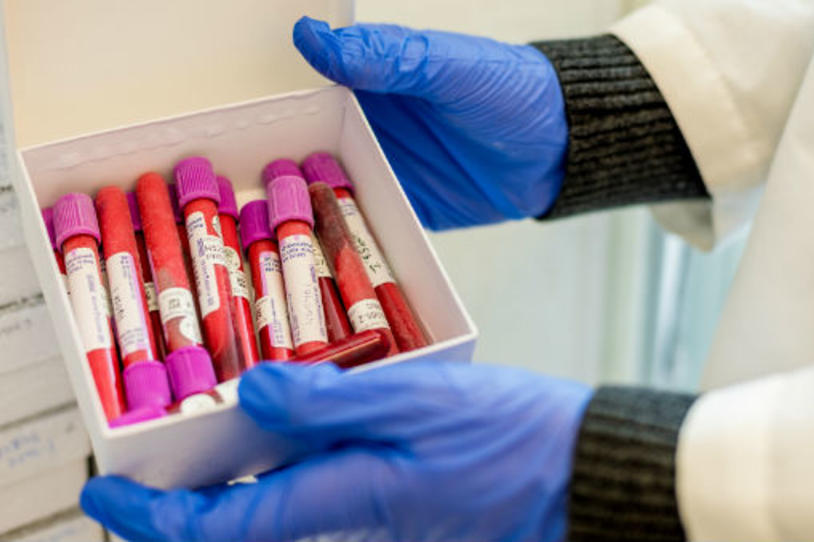
While a diabetes drug that scientists thought may slow Parkinson’s progression proved futile in a Phase II clinical trial, this avenue of therapeutic pursuit is not closed.
Drug repositioning — testing a drug approved for one disease for its effect on another — can be an efficient and effective way to find new treatments. In recent years Parkinson’s researchers have looked to diabetes drugs because of their action on pathways also involved in Parkinson’s disease (PD).
A team from the National Institutes of Health (NIH) Exploratory Trials in Parkinson Disease (NET-PD) consortium recently published results from its randomized controlled trial (the gold standard) of treatment with one diabetes drug, pioglitazone. Ultimately the researchers concluded that “pioglitazone at the doses studied here is unlikely to modify progression in early Parkinson’s disease.”
Principal investigator Tanya Simuni, MD, director of the Parkinson's Disease and Movement Disorders Program at Northwestern University in Chicago, spoke to us about the study, its results and what they mean for the future of Parkinson’s research.
MJFF: Thanks for your time, Dr. Simuni. What can you tell us about this drug your team studied: pioglitazone?
Tanya Simuni, MD (TS): Pioglitazone is approved by the U.S. Food and Drug Administration for treatment of type II diabetes. It works by reducing insulin resistance. The neurology field has examined its utility to slow progression of such diseases as Alzheimer’s, Huntington’s and Parkinson’s because it is believed pioglitazone acts on pathways implicated in brain disease: inflammation, mitochondrial function and oxidative stress.
MJFF: Our audience may have heard of another study published last week on lower incidence of PD among diabetic patients taking the drug class glitazones. Do those findings have any bearing on your results?
TS: Epidemiological data was not available at the time of our study, and, while complementary to the strong pre-clinical rationale, it is not a proof of efficacy.
MJFF: So it’s fair to say that, although they happened in parallel, your study would be the recommended next step from the findings of that association study — test in a controlled trial whether pioglitazone (as one of the glitazones) is neuroprotective.
TS: Correct.
MJFF: Please tell us about the design of your trial.
TS: First of all, we would like to express tremendous appreciation to all the volunteers for participation in the study.
Because the drug is already approved for diabetes treatment, we were able to skip Phase I safety testing. Ours is what we call a futility study. Phase II studies are not designed to definitely prove efficacy. They are best described as preparatory work for the definitive Phase III study. Futility trials have been used in PD and are widely used in cancer research; they are designed to weed out the molecules that do not have a chance for success.
You want to conduct a study that most efficiently — duration of the study, number of participants and cost involved — will answer whether the drug has the potential to be efficacious or not. If the molecule is futile, you stop there. If the molecule is not futile, that is not equivalent to efficacious. You need more data. It has to do with power calculations and sample size.
In this study we tested pioglitazone in people with recently diagnosed PD by randomly assigning them to one of two doses (15mg or 45mg, representing the lower and higher ends of the dosage approved for diabetes) versus placebo. The study recruited 210 participants at 35 sites. Volunteers were followed for 44 weeks, and the primary outcome measure was change in the Parkinson’s rating scale (UPDRS) score. Based on the analysis, neither dose of pioglitazone showed promise to be tested in further studies. The study did not have any significant safety concerns.
MJFF: Could you test higher doses? May those be effective?
TS: There are issues. The doses were chosen to reflect the dosing range that was neuroprotective in non-human primate models. The other issue you always have to balance is tolerability and toxicity. In this case there is no objective rationale or safety comfort to move to a higher dose.
MJFF: Understood. So where do we go from here?
TS: Our next questions are: Does this mean that this class of drugs does not have potential to modify PD? Or is it that this particular molecule and the dose tested are not neuroprotective? We believe it is the latter. There is still robust data from pre-clinical models.
Also, in parallel to the trial, Dr. David K. Simon at Harvard Medical School led a biomarker substudy, funded by MJFF, measuring markers of inflammation, oxidative stress and gene expression. Those readouts were to help us understand the potential neuroprotective action of pioglitazone. In our trial there was no change in the biomarker levels, which indicates that the lack of clinical benefits might reflect the failure to impact those pathways with pioglitazone. These findings leave the door open for other compounds working through the same pathways to potentially be efficacious.
While the results of our study are disappointing, it is an important study and there is still rationale and justification to test other molecules targeting the same mechanisms of disease.
MJFF: Anything else you’d like the patient community to know?
TS: While we view diabetes drugs as a promising PD research approach, I discourage people with Parkinson’s to explore use of diabetic drugs for treatment of PD today. There are other studies looking at hypoglycemic drugs in Parkinson’s (such as Exenatide in an MJFF-supported, London-based study). We strongly encourage participation in these clinical trials — as that is the only way we can prove efficacy of investigational compounds — but people with PD should not attempt to use these drugs in absence of definitive data on efficacy and safety.
Learn more about other MJFF-funded therapies in development.
